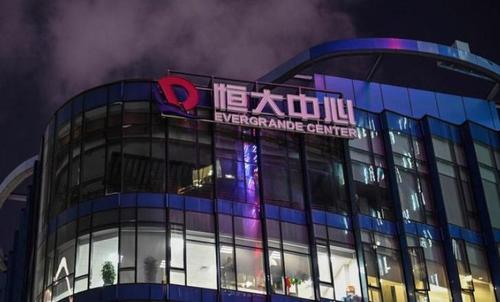Feature your business, services, products, events & news. Submit Website.
Breaking Top Featured Content:
Beijing Cracks Down On Banks, Regulators In Latest Anti-Corruption Drive
For everybody who speculated that Beijing’s fine against Meituan was a sign its crackdown on the private sector might be slowing, the reality is that President Xi Jinping and China’s top policy makers are merely moving on to their next priority now that Chinese tech giants have been reminded who’s in charge.
With China’s bond market in chaos thanks to the excesses of developers like Evergrande, Fantasia and others, the WSJ just reported that President Xi Jinping is launching an anti-corruption review of 25 Chinese financial institutions, including state controlled banks and private companies. Just like the “anti-monopoly” crackdown on Chinese tech behemoths like Alibaba, the crackdown on Chinese banks is intended to ensure complete CCP control over the “lifeblood” of the economy.
The investigation was announced in September with few details, but WSJ’s sources say it’s finally ramping up, as investigators try to determine whether state-controlled financial firms have become “too chummy” with the private sector.
Part of the crackdown will focus on compensation in the financial industry. Apparently, officials within China’s Ministry of Finance are concerned that compensation in China’s financial sector is “too high”.
Aside from the banks and firms themselves, China’s top anti-corruption agency, the Central Commission for Discipline Inspection, will also focus on whether regulators at the PBOC and other banking, insurance and securities watchdogs have been negligent in supervising companies. The suspicion is that they may have fallen under the spell of what is called “regulatory capture” in the US.
Over the coming weeks and months, employees from the commission will be fanning out to offices across the sector to review files, investigate lending activity and demand answers for how certain deals came to be. Zhao Leji, the head of the CCDI, said his investigators will “thoroughly search for any political deviations,” according to Xinhua.
WSJ added that it’s “notable” the crackdown is starting in the middle of the Evergrande crisis, which, as we have reported, is spreading to other developers. Chinese banks have already apparently gotten the memo, and banks have already started curtailing lending to private developers.
President Xi and others are concerned that aggressively lending to well-connected firms like Evergrande might be due to their close ties with state banks. Already, Chinese financial conglomerates that lent to Evergrande, including Citic Group, founded in the 1970s by Rong Yiren, an infamous “red capitalist”. State banks’ lending to Evergrande will also be examined.
One academic and China expert said Xi’s crackdown will hurt economic growth as banks sever business ties with private companies. “When uncertainty goes up, the only way to react is to stop doing what you’re doing,” said Michael Pettis, a finance professor at Peking University, to WSJ. “But a slowdown of economic activity in the private sector—from tech giants unsure of the regulatory climate to private developers whose lending spigot is cut off—presents a dilemma for Beijing. “Without ‘bad’ lending, you’re not going to achieve the growth target.”
And Evergrande isn’t the first Chinese firm to overextend itself. A few years ago, Beijing forced major private conglomerates like HNA Group to sell off pieces of their offshore portfolio following a global buying frenzy by a handful of major Chinese firms. HNA’s former chief executive is now in jail, and the company – once one of China’s high-flyers – has declared bankruptcy.
Despite Beijng’s warnings about real-estate lending, Citic has pumped more than $10 billion into Evergrande, per WSJ’s sources.
One of the managers responsible for lending to Evergrande, Xie Hongru, who ran Citic’s office in Guangzhou, close to EG’s home base in Shenzen, has been under investigation by the Party’s disciplinary investigators since last month, WSJ says.
But even more surprising than Citic (a private firm) is the fact that China’s sovereign-wealth fund, China Investment Corp, and several of China’s “Big Four” banks will face investigations over whether their ties to Didi helped the ride-share company’s application to IPO in New York sail through China’s regulatory framework. As officials at CIC brace for the Party investigators, a source inside the company told WSJ: “People are nervous.”
When it comes to the state-controlled entities, the big question will be: “Do those investments represent the state’s interests or those of a few individuals?”
To try and goose economic activity, the government could ramp up infrastructure investment and other elements of its old stimulus playbook.
Ultimately, Xi appears to have two goals: rein in the excessive lending that has created crises like the Evergrande debacle. And – most importantly – to make sure every financial firm private or otherwise remains completely loyal to the CCP.
Of course, when it comes to rooting out official corruption and inappropriate relationships between the state and financial firms, it looks like there’s plenty Chinese regulators can teach their American counterparts.
we should let him clean up congressional and fed insider trading and special interests here too https://t.co/Tq8G4hKlWS
— North Hero Trading (@northherofx) October 11, 2021
Tyler Durden
Mon, 10/11/2021 – 15:48
Continue reading at ZeroHedge.com, Click Here.

